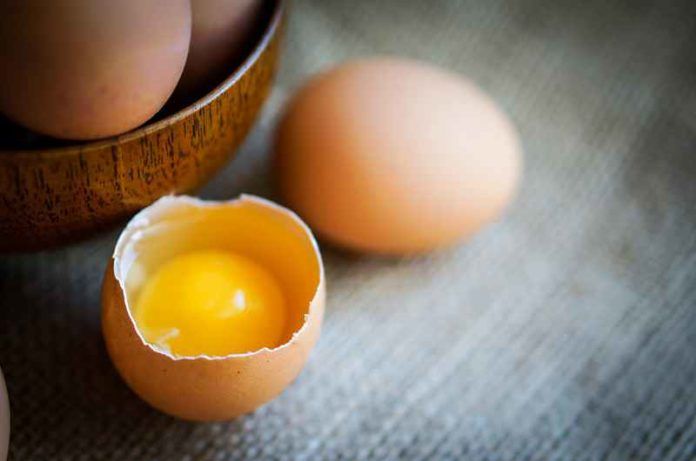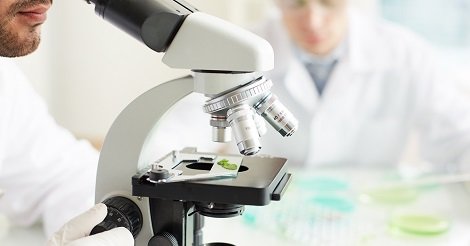Cholesterol metabolism in the body is most commonly affected by the consumption of dietary cholesterol and plant sterols. A new research study by Canadian scientists revealed that variations in cholesterol absorption and synthesis at an inter-individual level have a significant influence on plasma lipid levels in healthy individuals.
Cholesterol is a lipoprotein component of body tissues and blood most commonly influenced by various dietary patterns interventions. The cholesterol which is carried by the lipoprotein exists in different forms: HDL (high-density lipoproteins), LDL (low-density lipoproteins), VLDL (very low-density lipoproteins). Changes in lipids and cholesterol absorption and synthesis alter the highly variable low-density lipoproteins (LDL)-cholesterol, which can lead to the onset of long-term heart problems such as cardiovascular disease (CVD). Generally, different levels of dietary cholesterol intake are involved in enhancing plasma cholesterol (i.e. total cholesterol (TC) plasma), thereby affecting the homeostasis of absorption or synthesis. In comparison to cholesterol intake, plant sterols have been observed to have positive effects on circulating lipid profiles, thereby reducing the potential risk of CVD onset. In addition, plant sterols not only reduce cholesterol levels by blocking the cholesterol absorption but increase the cholesterol synthesis process. Therefore, dietary cholesterol shows variation from plant sterols at functional and kinetic (absorption and synthesis) levels, but still, similarities still exist at a structural level. As well, variations in cholesterol synthesizing ability exist between dietary cholesterol and plant sterols at inter-individual levels. A study in this direction was carried out by Jones and his team, at the University of Manitoba, Canada, for estimating the plasma lipid levels in response to dietary cholesterol and plant sterol, and variations in cholesterol metabolism rates by using stable isotopes in healthy individuals. The crucial findings of the study were
In addition, plant sterols not only reduce cholesterol levels by blocking the cholesterol absorption but increase the cholesterol synthesis process. Therefore, dietary cholesterol shows variation from plant sterols at functional and kinetic (absorption and synthesis) levels, but still, similarities still exist at a structural level. As well, variations in cholesterol synthesizing ability exist between dietary cholesterol and plant sterols at inter-individual levels. A study in this direction was carried out by Jones and his team, at the University of Manitoba, Canada, for estimating the plasma lipid levels in response to dietary cholesterol and plant sterol, and variations in cholesterol metabolism rates by using stable isotopes in healthy individuals. The crucial findings of the study were published in the British Journal of Nutrition, 2017.
A randomized, placebo-controlled clinical trial study was carried out in 49 healthy individuals of the Manitoba Hutterite population. Researchers estimated and compared the plasma fat content to dietary cholesterol and plant sterol intake, along with comparing cholesterol kinetics estimations in healthy individuals to each sterol using stable isotopes. Each study participant was subjected to a 4-week experiment and was given one of the three treatments: a milkshake containing 600 mg/d of dietary cholesterol, plant sterols (2 g/d), or a control, all after a breakfast meal. The plasma lipid profile was determined, and researchers also determined cholesterol absorption and synthesis by oral administration of [3, 413C] cholesterol and 2H-labeled water, respectively. The study results have shown the dietary cholesterol consumption increased total and HDL-cholesterol concentrations, with no changes in cholesterol absorption or synthesis. Interestingly, dietary cholesterol increased absorption, which usually suppresses endogenous cholesterol synthesis, unlike plant sterol consumption, which decreases cholesterol absorption. Plant sterols were observed to show failure in reducing LDL-cholesterol concentrations despite showing a reduction in cholesterol absorption.
In conclusion, cholesterol absorption or synthesis in the body is not affected by a dietary form of cholesterol; however, dietary cholesterol increases plasma TC and HDL cholesterol levels, while plant sterol consumption enhances cholesterol synthesis with small decreases in plasma cholesterol absorption by the obstruction of LDL-cholesterol. Variation at an individual level in the consumption of dietary sterols has led to alterations in plasma lipid levels. However, the population from the Hutterite community consumed the same diet but energy intake seen at the individual level differed and the findings of the study cannot be extended to the general population, which may limit the findings of the study. In addition, genetic studies with phenotypic associations of the crucial single nucleotide polymorphisms (SNPs) involved in lipid and cholesterol metabolism as well as gene-diet interactions would provide a better understanding of cholesterol kinetics, thereby giving a clear insight of individual responses to cholesterol vs plant sterol consumption. Future research on suitable individual-based dietary approaches would definitely aid in the knowledge of how to control cholesterols levels, thereby preventing the onset of CVD.
Written By: Manche Santoshi, PhD



